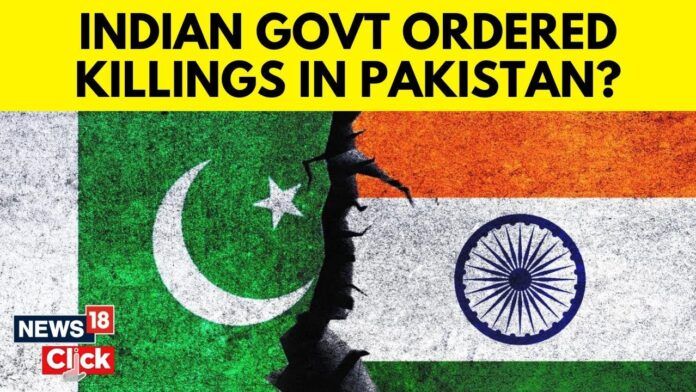Intelligence claims up to 20 dissidents targeted since 2020, amidst broader accusations of extrajudicial killings by India
Recent intelligence revelations have sparked controversy, alleging the Indian government’s involvement in the targeted assassinations of up to 20 individuals in Pakistan since 2020. According to intelligence operatives from both India and Pakistan, these actions form part of a strategic move to neutralize terrorists residing abroad, directed by India’s Research & Analysis Wing (RAW), under Prime Minister Narendra Modi’s direct control.
This development adds a new dimension to existing tensions, with Delhi previously accused by international allies of engaging in the assassinations of dissidents, including a Sikh activist in Canada. The freshly disclosed claims suggest a focused strategy by India to eliminate those it deems hostile, extending to Sikh separatists within the Khalistan movement.
Documents from Pakistani investigators and accounts from intelligence officials indicate that the killings were meticulously planned, involving sleeper cells primarily operating from the United Arab Emirates. These cells allegedly orchestrated the assassinations by recruiting local criminals and jihadists under the guise of combating infidels.
The shift towards targeting dissidents abroad reportedly stems from the aftermath of the 2019 Pulwama attack in Indian-administered Kashmir, prompting a reevaluation of India’s security approach. This strategy aligns with tactics employed by international intelligence agencies, such as Israel’s Mossad and Russia’s KGB, and draws inspiration from high-profile cases like the assassination of Jamal Khashoggi.
Indian intelligence sources defend this strategy as a necessary measure to preempt external threats. In contrast, Pakistani intelligence officials, citing detailed investigations into several killings, attribute these actions to RAW’s operations, revealing coordination efforts extending across the UAE, Nepal, the Maldives, and Mauritius.
India’s Ministry of External Affairs has categorically denied these allegations, reiterating its stance against the policy of targeted killings. The ongoing controversy raises significant implications for international relations, especially given the strategic and economic ties between Western nations and Modi’s administration.
This unfolding narrative challenges the global community’s stance on extrajudicial killings and the ethical boundaries of national security measures, further complicating the already strained relations between India and Pakistan.
